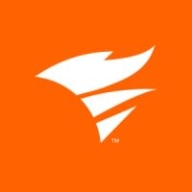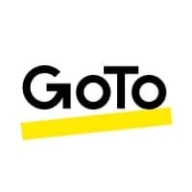


LogMeIn Pro and Dameware Remote Support are two prominent remote support solutions. Users are generally more satisfied with the comprehensive features of Dameware Remote Support, although LogMeIn Pro is praised for its ease of use and effective performance.
Features: LogMeIn Pro is appreciated for its user-friendly interface, efficient remote access, and file-sharing capabilities, making it a strong choice for those prioritizing simplicity and functionality. Dameware Remote Support stands out with its advanced troubleshooting tools, remote control of Windows devices, and Active Directory integration, which caters to more technical users needing robust features.
Room for Improvement: Users of LogMeIn Pro frequently mention the need for better customer support and more competitive pricing. Dameware Remote Support users suggest improvements in the stability and performance of the software, especially when handling larger networks. While both products have areas to address, LogMeIn Pro users are more vocal about the cost-related aspects.
Ease of Deployment and Customer Service: LogMeIn Pro is recognized for its straightforward deployment process and intuitive setup, along with responsive customer support. Dameware Remote Support, on the other hand, requires a more technical setup but offers extensive documentation and support for troubleshooting. Users find LogMeIn Pro easier to deploy but have more confidence in Dameware's technical support for complex issues.
Pricing and ROI: LogMeIn Pro users express concerns about high subscription costs, suggesting that ROI is not always justified. Dameware Remote Support users find the pricing to be more reasonable given the advanced features provided, leading to a perception of better value for money. Although LogMeIn Pro offers a smoother initial experience, Dameware Remote Support is perceived to provide a better long-term investment.


Microsoft Intune provides centralized management of mobile devices and applications, ensuring security, compliance, and productivity through integration with Microsoft services like Microsoft 365 and Azure Active Directory.
Organizations use Intune for managing mobile devices and applications, enhancing security and compliance across platforms. With features like single sign-on, conditional access, and zero-touch deployment via Autopilot, it facilitates efficient operations. Intune's scalability, easy enrollment, and capabilities such as remote wipe support diverse device management, offering robust data protection and efficient operation. Despite its features, improvement areas include reporting, compatibility with non-Microsoft devices, and better support for macOS and Linux devices.
What are the key features of Microsoft Intune?
What benefits should users look for in reviews?
In industries such as finance, healthcare, and education, Microsoft Intune is implemented to ensure secure and compliant device management. Companies leverage its capabilities to deploy security policies and manage both corporate-owned and BYOD environments, facilitating a unified approach to data protection and compliance.
We monitor all Remote Access reviews to prevent fraudulent reviews and keep review quality high. We do not post reviews by company employees or direct competitors. We validate each review for authenticity via cross-reference with LinkedIn, and personal follow-up with the reviewer when necessary.